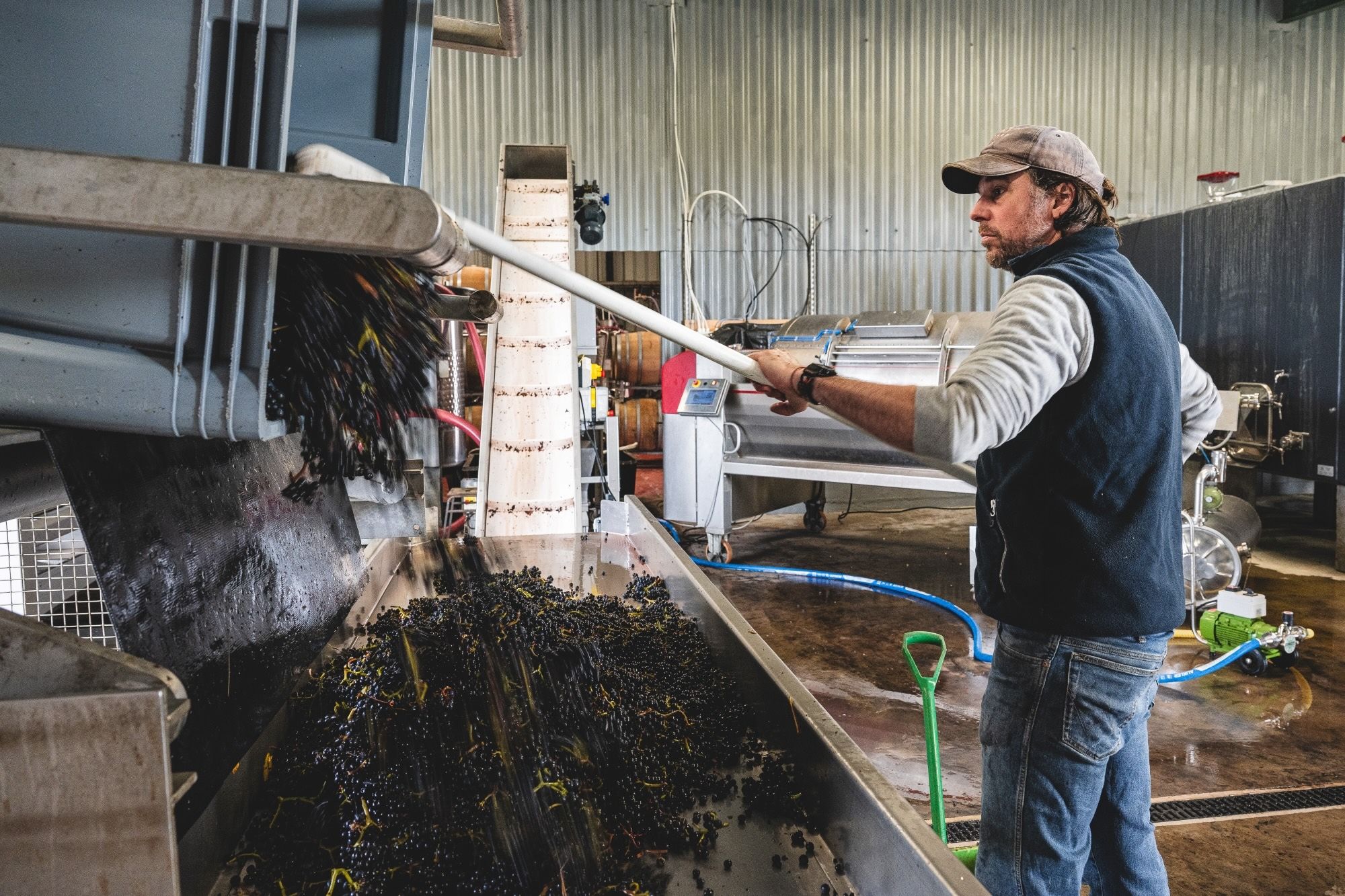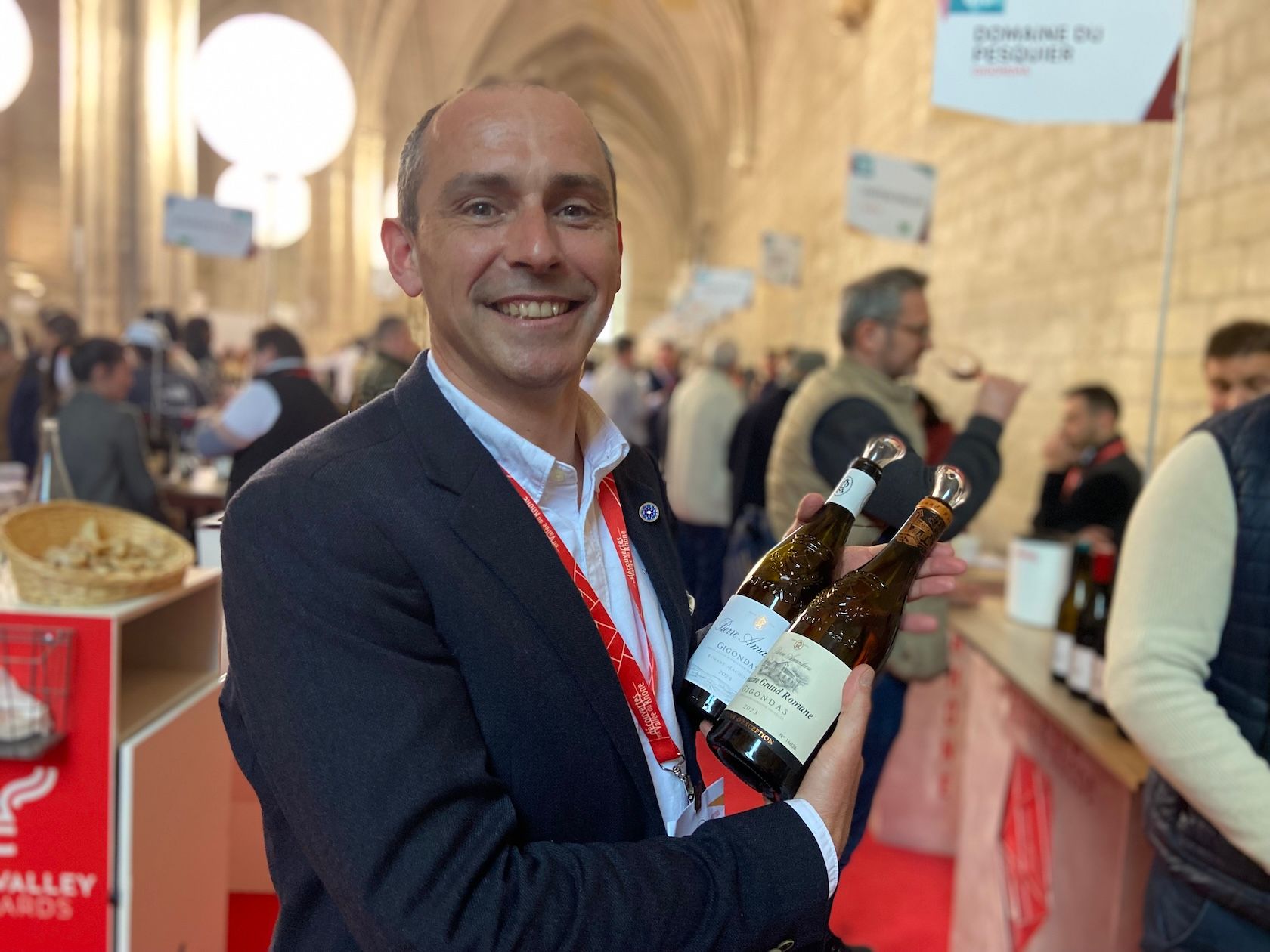“We made an early decision that this was not a situation to cost-cut our way through. It was a situation to finance our way through – and bank finance has been forthcoming. We didn’t want to cut off a limb now and limp our way into a brighter future,” Hamilton Russell says
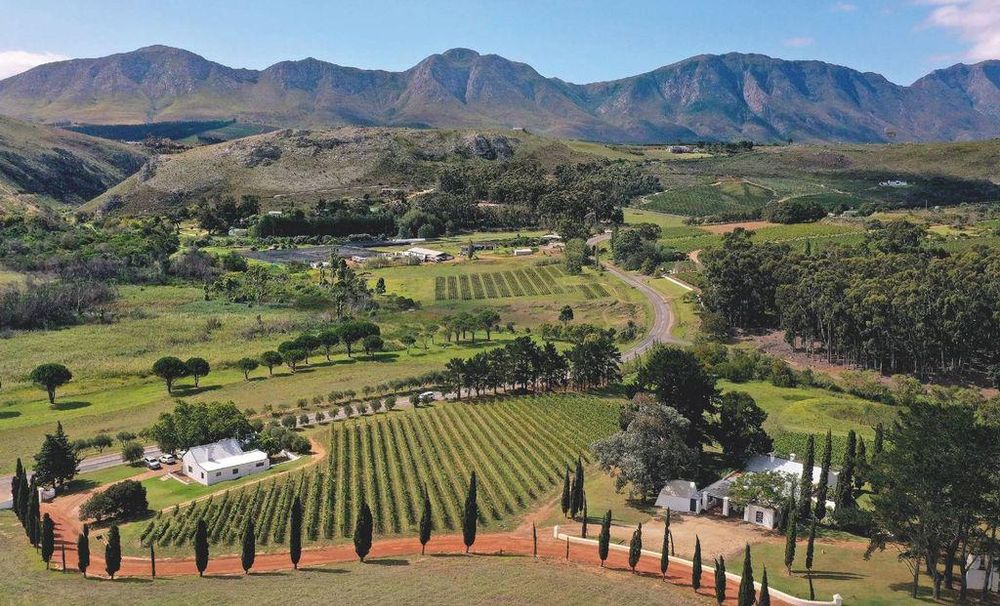
Hamilton Russell Vineyards is situated near the old fishing town of Hermanus and is one of South Africa’s most iconic wineries, chiefly known for producing Burgundian style Chardonnay and Pinot Noir
Peter Dean: What is the current situation in South Africa? Re. Lockdown/ bans/ restrictions?
Anthony Hamilton Russell: As of August 17th we were finally allowed to sell wine again in South Africa with certain limitations. For off-consumption Mondays to Thursdays only, from 9am to 5pm and for on-consumption all week but not beyond 10pm. There is a curfew and everyone needs to be indoors from 10pm to 4am.
From March 26th at the beginning of lockdown, all local sales and export sales were banned. Export sales re-opened on April 7thand were suspended again on April 17thand then reopened May 1st, but with significant delays at the ports. Local sales reopened on June 1st, but were suspended again on July 12th.
So there has been a long period during which South African wine producers couldn’t generate any local turnover while their exports (where demand existed) were disrupted.
With international borders still remaining closed to visitors the significant tourist business is unavailable to restaurants, hotels and winery tasting rooms.
What impact has the government response had on your business and South African wine business as a whole?
It is more the general global pandemic that has been responsible for the industry’s business challenges, than our government’s response to it. Other than the banning of alcohol sales, their response, while fairly draconian, has been broadly in line with many other governments.
It certainly hurt us, but the patient is alive and kicking. In fact, things have not been nearly as bad as we initially expected. We had fortunately shipped much of our export allocations of our 2019s before lockdown, so we have had reasonable income. The big surprise has been how strong export demand has been during this period. We had expected this to be greatly reduced, but several of our main markets have requested additional stock over and above their allocations. With no local sales allowed for so long, we have been able to supply this. It is now widely known that wine consumption has gone up during this period internationally.
The weak Rand and lower interest rates have helped things as well. After the 2008 “crash” the particularly strong Rand, very tight credit and high local interest rates really hurt.
We made an early decision that this was not a situation to cost-cut our way through. It was a situation to finance our way through – and bank finance has been forthcoming. We didn’t want to cut off a limb now and limp our way into a brighter future. So we continued with planting new vineyards on Ashbourne and replanting vineyards on Hamilton Russell Vineyards as planned. We also committed not to reduce any salaries or lay anybody off. So far so good. We have also managed reasonably significant contributions to local feeding schemes.
The people I really feel for are our colleagues in the restaurant and hospitality industry. If we loose a sale today, we still have the wine that we can sell later. If a restaurant or hotel looses a sale today, that sale is gone forever. Our issue is one of financing the delayed revenue. Theirs is different – and worse.
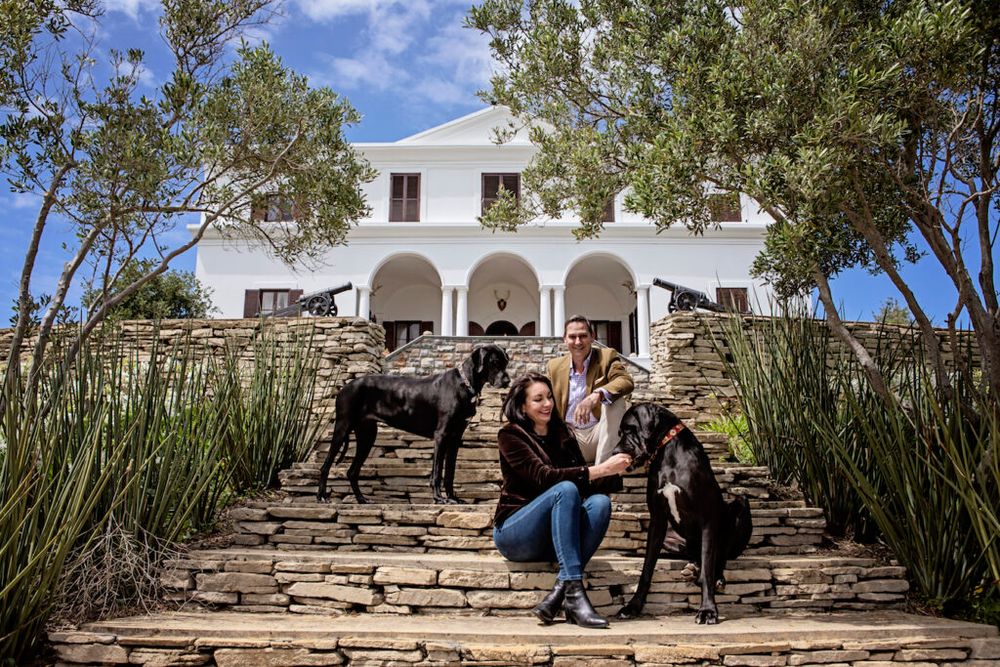
Olive and Anthony Hamilton Russell
Wineries that built their businesses around a significant percentage of high-margin direct sales to local visitors and tourists – and those that relied on sales of their wine through their own restaurants, have been particularly hard hit. This often, but not always, means wineries with underdeveloped and/or neglected export markets. By design, we have not often sold more than 7% directly to visitors. We encourage visitors to rather purchase wine in their home markets or from their retailer of choice. We see ourselves as wine producers for the world, not local wine retailers or restaurateurs. And we are not, other than indirectly, in the tourism industry.
Grape growers operate on tight margins at the best of times – inexcusably tight in many cases I believe. More of the value of a fine wine should be attributed to the grower, and they should get it. There may be quite a few bad debts for grape growers – or at least significantly delayed payments. The best growers will continue of course, but there may be an accelerated removal of marginal vineyards. Not necessarily a bad thing for the industry in the longer-term.
Wineries have a strange way of staying open, despite not making money – or in some cases never making money. They don’t close, they find a new set of people to shoulder the financial burden. It is actually quite rare to see a winery shut down completely and auction off their equipment. The full force of the free market doesn’t always apply to the wine industry. People fail to take account of the non-financial (psychic) income that drives a lot of the investment. Perhaps a few wineries will close, but not many.
Many staff industry-wide have, however, been laid-off and this is particularly unsettling in a country already suffering very high unemployment rates.
From Europe it feels like the government’s response was more devastating than the virus itself. True or not?
That is open to debate and could be said to apply to government responses worldwide. It becomes a philosophical (perhaps political) argument. Sweden’s response or the UK’s. It already seems as if previous pandemics were more deadly – Hong Kong Flu in 1968 for example – and it may turn out that the true Covid 19 death rate is not much more than a bad seasonal flu.
How do you think it should have been handled differently?
In South Africa’s case, our industry would be unanimous in a belief that exports should not have been closed down, albeit for a relatively short period. And they would be unanimously in opposition to the total ban on wine sales locally.
All of us fully understand the government’s desire to avoid alcohol-fuelled domestic abuse in tightly crowded lockdown conditions. And many understand that hospital ICUs needed to be kept free of alcohol abuse-related injuries for Covid 19 cases. But, as it turned out, the hospitals have not been overrun and our doctors have coped remarkably well. Our death rate from Covid 19 has been unexpectedly low.
In addition, it is not wine and certainly not fine wine, that fuels domestic abuse and other alcohol-related dysfunctional behaviour.
It was perhaps hard for the government to legislate selectively for alcohol types, for political and practical reasons.
What are you doing now to overcome the effects of the bans?
We have given a lot of thought to that – and we have certainly had the time to think. Initially the local sales have been almost entirely retail-focused and we prepared for this with as regular contact with our local retail customers as possible. We also had our limited stock ready. We have opened up certain multiples for our wines, that never previously got much or any. This has compensated for a slow stop/start for the on-trade. We decided not to push on-line retail directly from the property to boost sales – and we are not discounting. Again, we are producers, not retailers. There are more and more specialist on-line retailers who deserve a “cut” for their effort and investment.
We will of course be generous to restaurants that owe us money (and there are quite a few). The situation is not their fault. In short, we will continue to supply wine to restaurants re-opening up, even if they have unpaid debt to us.
Eventually I believe business will re-establish normality – or a kind of normality. I would caution against an excessive reliance on on-line contact, which has proved so useful and comfortable from our home “offices”. It is over-traded and as we all either suspect – or know – it is no substitute for personal contact. So as soon as we can travel more freely, we will visit our customers.
We have all had time to think. Perhaps a little more deeply and strategically than before. This should result in a little more focus in the industry and with luck several better designed businesses. We all know the saying “never waste a good crisis”. And we won’t.
Our team has a fine balance of optimists and realists (no pessimist ever accepts any title other than realist). But I would say we would come out on the side of a recovery faster than expected. People are amazingly resourceful in troubled times. Restaurants have become such a cherished experience – and almost a way of life for so many – that there will be a drive towards their proper re-opening and regular patronage. If anything, wine has become a more cherished “small luxury”. And there are more people who know a little more about it with their additional time for on-line activity during lockdown. Travel is also increasingly hardwired into so many people – particularly the more affluent, of which there is still an ample supply. And South Africa remains an extremely attractive destination – often for the more courageous and less conventional traveller. When the flights open, the people will come.
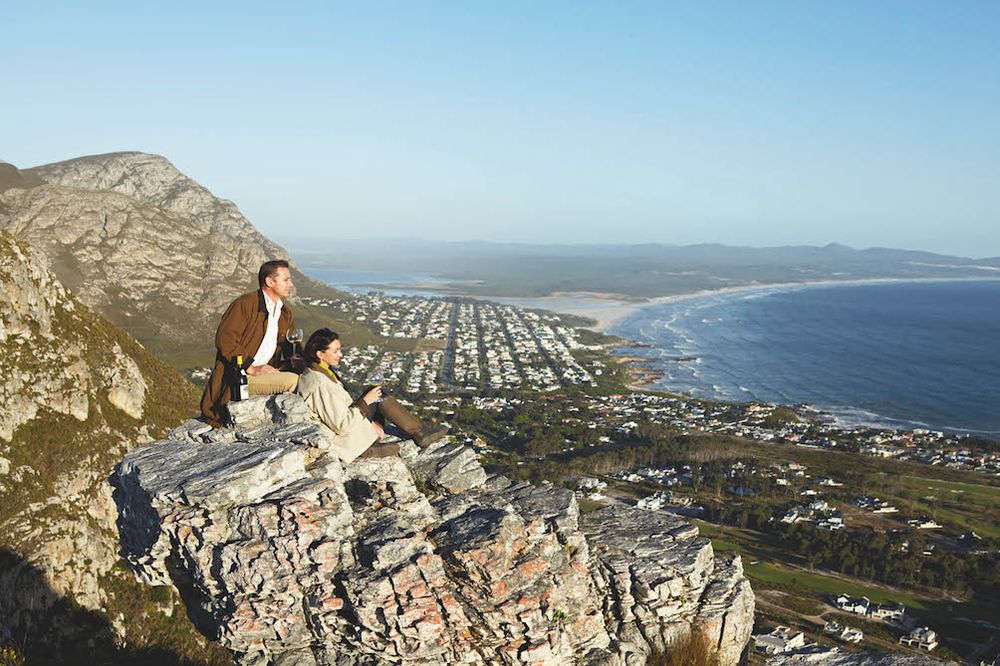
Anthony and Olive Hamilton Russell overlooking the Walker Bay from the top of Hamilton Russell Vineyards
Was the international response felt at all?
It was certainly uplifting to read about – and feel – the support for South African wine internationally. I know our industry is extremely grateful. I can’t speak for everyone, but we experienced a very healthy retail demand for our wines during these troubled times.
How is business generally for you?
The thing I’m happiest about is retaining all our team on full salaries. Even the people whose sole job it is to sell wine in South Africa. We have also had record exports despite logistical difficulties. We finally had a little more wine to offer certain key international markets. So luckily we have been fine.
I would, however, add that the Covid 19 hangover will be felt for some time. There is a large surplus, a lot of unpaid bills and the likelihood of significant discounting.
Have you caught up with trying to supply your international markets?
Yes we have. And our international distributors have been incredibly supportive, despite their own business issues.
You were finally allowed to bring in the 2020 harvest – but what effect did the delay have?
We luckily only work with early ripening varieties, so harvest was in before lockdown. For some there were a nail-biting few days of uncertainty before successful industry lobbying won the right to proceed with harvest with all the necessary precautions. There were a few cellar difficulties and losses, but fortunately these were not dramatic.
How is the vintage looking like across your various properties?
Nature seemed to reward the industry for its troubles with a truly beautiful vintage.
Tell us about what new wines you have in the range, and wines that are being re-introduced.
As great believers in focus – we simply have the new vintage of the same wines.
2020 is a special vintage for you in terms of anniversaries. Tell us about these and how you intend to celebrate.
2020 is our 40th vintage on Hamilton Russell Vineyards – and my 30th year at the helm. Our celebration is our continued success. We are extremely grateful for it.
The wines of Hamilton Russell Vineyards are imported into the UK through Mentzendorff, which is a partner of The Buyer. To find out more about Mentzendorff click here.



